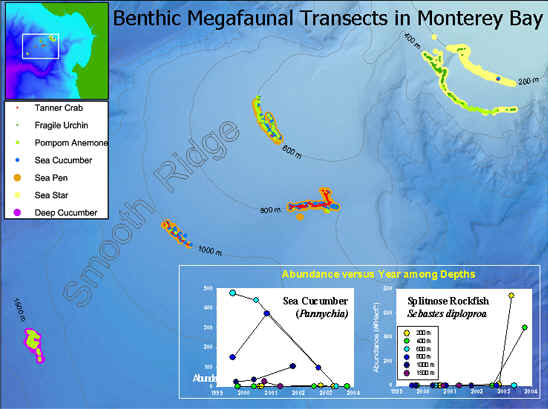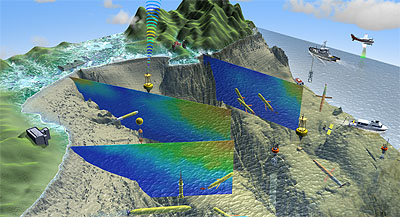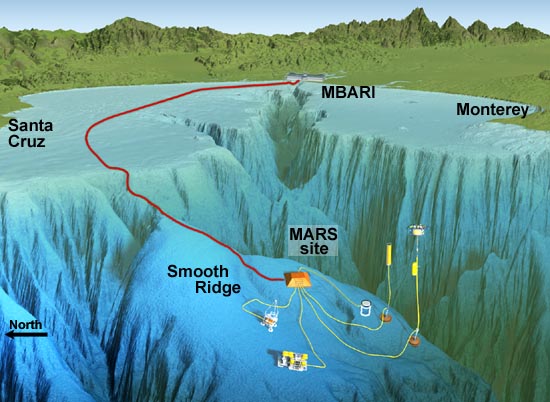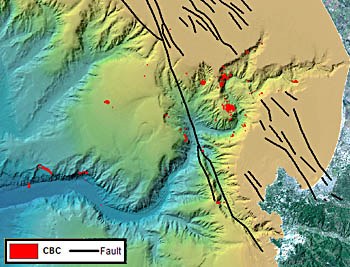 | Monterey Bay Bentos |
|
Monterey Bay 2006 field experiments-http://www.mbari.org/moos/-http://www.mbari.org/mb2006/default.htm |
A new way of doing oceanography-http://www.mbari.org/mars/Default.html- http://www.mbari.org/shepard/default.htm |
This map of Monterey Canyon shows the locations of chemosynthetic biological communities (CBCs) as red dots. Black lines are faults mapped within the bay. Contrary to scientists'' expectations, many of the CBCs are not located near known faults -http://www.mbari.org/news/homepage/2005/noseeps.html#aboutcbcs |
Bentos, see also What Are Cold Seeps onhttp://www.mbari.org/benthic/coldseeptour.htm
Cold seeps page -http://www.mbari.org/benthic/coldseeps.htm
Marine Biology Research in MBARI - http://www.mbari.org/topics/biology/bio-main.htm (Microscopic life in the open ocean and Larger animals in the open ocean)
Microscopic life in the open ocean
Some of our scientists focus on microscopic algae, animals, and microbes that live in the open ocean. Some specific areas of research include:
Red tides and algal blooms
Iron and algal blooms
How marine algae interact with other marine organisms, ocean chemistry, and climate
The ecology and genetics of microscopic marine algae
Using automated DNA analysis to study marine algae and microbes
Marine microbes (bacteria and archaea)
Larger animals in the open ocean
Other MBARI scientists study larger animals, such as jellies, squids, and fishes that drift or swim beneath the ocean surface. Some specific areas of research include:
Jellies
Octopuses, squids, fishes, and other midwater animals
Marine life around icebergs
Glowing marine organisms
Life on the deep seafloor
A third group of marine biologists studies "benthic" animals and microbes that live on or within the seafloor. Some specific areas of research include:
The ecology of deep-sea animal communities
Life at deep-sea hydrothermal vents
Life at "cold seeps"
Whale falls
Seamounts and deep-sea corals
Human impacts on seafloor animals
Monterey Bay Marine Ecological Systems
Megafauna from 200-1000m
Benthic Invertebrates: Infauna (and some Epifauna)
What are cold seeps?
Factors Regulating Productivity in Chemoautotrophic symbiosis



